The Master of Science in Biomedical Innovation and Development – Advanced Therapeutics (MSBID-AT) program at Emory University builds a broad foundation that includes training, professional development, and career planning so you’re ready for a dynamic, fast-growing field.
Potential Career Paths:
- Product Development / R&D
- Discovery Scientist
- Manufacturing Scientist / Engineer
- Quality Engineer / Scientist
- Pre-Clinical Operations
- Clinical Operations and Regulatory Consultation
- Medical Affairs / Clinical Communications
- Marketing
- Clinical Sciences / Technical Sales Support
Candidates for this master’s program include:
- Aspiring students who wish to pursue a career in advanced therapeutics in industry, startups, or regulatory agencies.
- Early-career professionals working in biomedicine.
- High-performing recent graduates with undergraduate or graduate degrees in engineering, science, or medicine.

Angela Gil Nelms, Managing Director - Biolocity
Angela Gill Nelms is the Director of Biolocity and leads efforts to support and accelerate the commercialization of early-stage medical technologies with intellectual property held at Emory University and/or the Georgia Institute of Technology. She provides business leadership and commercialization strategy at the intersection of academia, medicine, investment, and industry to successfully transition earlystage technologies into thriving start-ups and licenses for industry. Prof. Nelms possesses extensive experience in executive leadership and biotechnology entrepreneurship, having begun her career in the clinical trial sector at Medtronic and Emory Healthcare. She has also served as chief operating officer at several startup companies, including Florence Healthcare, RenovoRx, and Aetos Imaging. Prof. Nelms has been acknowledged for her philanthropic contributions and her promotion of medical advancements, entrepreneurship, and community engagement. At Georgia Tech, she is a member of the College of Engineering advisory board and the Georgia Tech Advisory Board (GTAB), which provides direct advice to the university’s president. She previously served as the Coulter BME Department’s advisory board chair. Prof. Nelms has received the Georgia Tech College of Engineering’s Young Alumni Award and the Academy of Distinguished Alumni Award, granted to those who have made significant contributions to their field, the university, or society. Prof. Nelms holds a BS in BiomedicalnEngineering from Georgia Tech.

Samir Patel, Ph.D.
Samir Patel, Ph.D. is an engineer with an entrepreneurial spirit. He is currently co-founder and CEO of Moonlight Therapeutics. Moonlight Therapeutics is focused on improving the quality of life for people with food allergies by providing patient-friendly treatments. Prior to Moonlight Therapeutics, Dr. Patel was a co-founder of Clearside Biomedical (NASDAQ: CLSD). Clearside is an ophthalmic pharmaceutical company developing targeted therapies for ocular diseases. He invented the suprachoroidal technology that led to the creation of Clearside Biomedical and served as Director of Research from inception to the end of 2016. The company is currently in late-stage clinical trials in multiple indications and completed an IPO in 2016. Prior to that he was at Georgia Institute of Technology where he obtained his doctoral degree in Chemical Engineering and focused on research using microneedles for ocular drug delivery. He worked for Alza Corporation (A J&J company) on controlled release oral drug products between his undergraduate and graduate degrees. Dr. Patel obtained a dual B.S. degree in Chemical and Material Science Engineering from University of California at Berkeley.
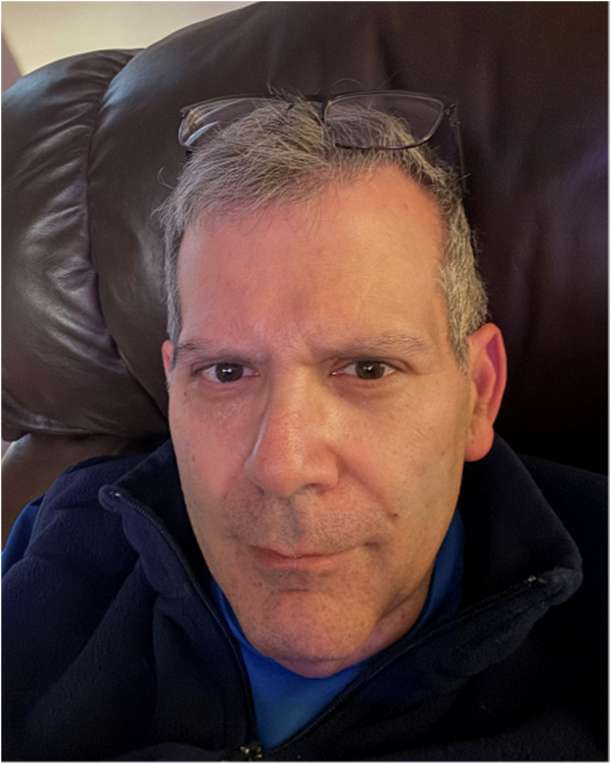
Phillip J. Santangelo, Ph.D.
Phillip J. Santangelo, Ph.D.’s journey to biomedical engineering was not straightforward. He started out as an aerospace/mechanical engineer working on optical diagnostics for fuel injectors, and is am now working on treatments for cancer, autoimmune disease, and a number of viral infections. How did that evolution occur? During his undergraduate education he was introduced to optical diagnostics for probing and interrogating fluid flows. This increased his interests in optics and imaging, and during his Ph.D. work at University of California at Davis, he developed and utilized optical methods to probe liquid phase combusting flows. His interest grew in optics and then post-PhD, and he continued his work in instrumentation development, both at Sandia National Labs and in industry. At a certain point, he wanted to broaden the impact of his work, and biology seemed to be the place to do that. He wanted to merge his interests in engineering with biology. To facilitate this transition, he left industry and worked with Gang Bao, Ph.D. at Georgia Tech and Jim Crowe, M.D. at Vanderbilt, focusing on imaging RNA and applying this to the interrogations of viruses. This led to becoming a professor at Georgia Tech in Biomedical Engineering in 2007. Currently, Dr. Santangelo is the Jonathan and Sheryl Layne Professor of Biomedical Engineering at Emory University and Georgia Tech. His current research interests are focused on the development of nucleic acid-based therapies for cancer, autoimmune disease and various infectious diseases. In the field of nucleic acid-based therapeutics, his lab has spearheaded the development of a molecular toolbox for characterizing mRNA delivery and the development of new applications of mRNA, including the delivery of mRNA-encoded antibodies, gene modulators and CRISPR proteins to mucosal interfaces, with an emphasis on the lung, gastrointestinal and female reproductive tract.
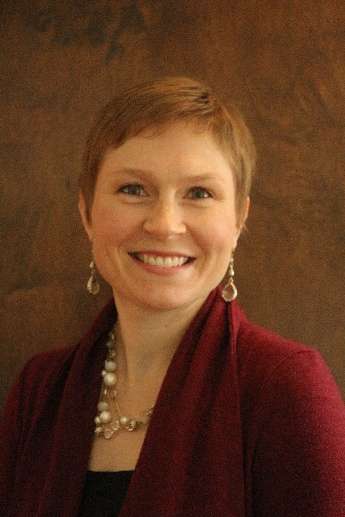
Abbey Wojtowicz, Ph.D.
Abbey Wojtowicz, Ph.D. is passionate about improving health and health care for people with chronic diseases. She excels at communicating scientific data in meaningful and impactful ways to ensure physicians can make well informed treatment decisions for their patients. Dr. Wojtowicz obtained her Ph.D. in biomedical engineering from Emory University and Georgia Institute of Technology. Her entire career post-graduate school has been in industry with majority of her time spent in medical affairs roles. She is currently a medical director in gastroenterology, leading life cycle management and strategic scientific communications in inflammatory bowel disease and as well as launch excellence. She lives in Boston, MA with her husband Joe and 2 sons, Leo (11) and Andre (8). When she’s not working, she enjoys baking fun cakes, ice skating, hiking, and playing sports with her kids.

Carolyn Yeago, Ph.D.
Carolyn Yeago, Ph.D. is a distinguished biotech leader with a background in strategy, partnerships, and research. She is an Associate Professor at Emory University and the Director of the Master of Science in Biomedical Innovation and Development – Advanced Therapeutics program, which prepares students for impactful careers developing next generation advanced therapies. Dr. Yeago has held positions across industry and academia, always focused on translational research and positioning early research efforts to impact product development. She is the founder of CY Solutions, LLC, where she provides strategic planning and technical direction to universities, non-profits, and corporations. At the Georgia Institute of Technology, Dr. Yeago held multiple roles, including Associate Director and Principal Scientist at the Marcus Center for Therapeutic Cell Characterization and Manufacturing (MC3M), and Director of Strategic Partnerships for the NSF Engineering Research Center for Cell Manufacturing Technologies (CMaT). Her leadership was instrumental in managing multimillion-dollar budgets, leading cross-functional teams, and fostering industry and academic collaborations. Previously, she served as the Executive Director of Research Affairs at Wellstar Health System, where she established new scientific programs and expanded research activities, and worked at Halyard Health (now Avanos Medical) leading cross-functional teams of strategic marketers, engineers, and scientists to develop new medical devices and platform strategies. Dr. Yeago holds a PhD in Biomedical Engineering from Georgia Tech and Emory University, and a BS in Biomedical Engineering & Biological Engineering from North Carolina State University. She is an inventor with several patents and has been awarded numerous grants from NIH, FDA, and NSF.
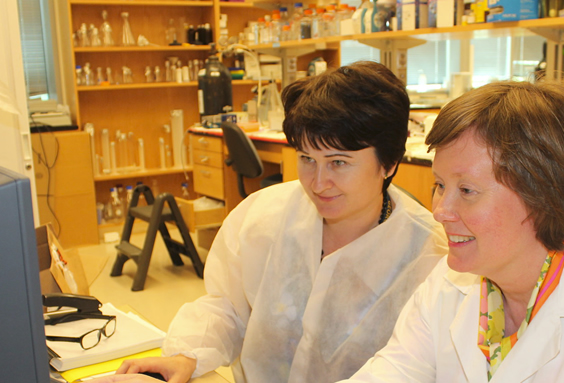
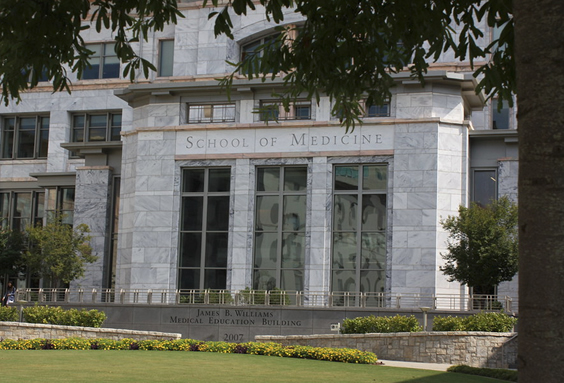
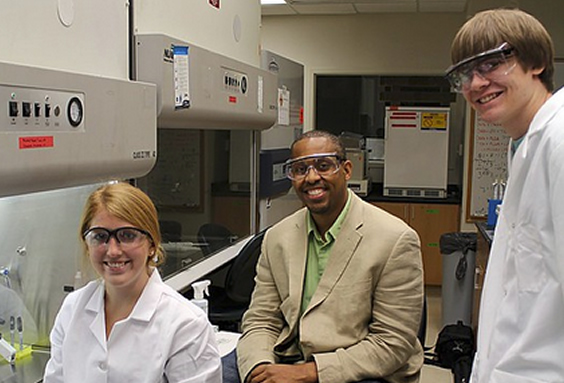

In this course, students will study the breadth of the industry, its structure, markets, specialties, and commercial opportunities. They will be exposed to the initial process of developing a new product which starts with uncovering unmet clinical needs.
This course will be an introduction to evolving new advanced therapeutic technologies and cover some of the emerging technologies in the evolving therapeutic space. These include cell therapies, gene therapies, stem cells, genome editing, CRISPR technology, tissue engineering, regenerative biomaterials, and combination therapies. The course will also help the student describe the process of selection of an appropriate new therapeutic product for a given unmet clinical need.
This course will cover an introduction to industry standard methods, techniques and processes for preclinical product and process development for a new therapeutic agent or product. The industry has a well-established process by which desired product attributes meet specific endpoints and are developed. Oftentimes, new processes must be developed for the manufacture of these new modalities of treatment. The student will be exposed to these and other related concepts in new product design and manufacture.
This course will examine the process and ethical considerations that provide for the safe and humane clinical testing of new therapies in a preclinical and clinical setting with human subjects. It will cover topics such as clinical trial design and trial management and operations. It will also review the ties of clinical operations with science based and scientifically bourn marketing claims once approved by the authorized regulator in a given market.
This course will explore the different techniques and processes available to manufacture advanced therapeutic products. It is important to recognize that there are different types of cell, gene, and other advanced therapies that face very different manufacturing challenges. Additionally, biologically based and combination advanced therapies face their own processing requirements. Clinical trial design and ultimate commercial distribution goals of a new therapy will be one of the guideposts that determine a manufacturing strategy for a new therapy.
This course will provide an overview of both regulatory and quality aspects of the advanced therapies industry and allow the student to develop an understanding of pathways necessary for proper quality and regulatory compliance. The course will cover key topics such as the role of the patient in the overall regulatory strategy for a new product, the concept of total quality and risk management tools and techniques in the process of the development of new products, and the components of a quality management system.
Successful development and introduction of a new therapeutic agent requires solid mastery of project management and communications skills. This course will review basic project management skills, team leadership skills, and best practices in corporate communication and the ethical considerations therein. Additionally, the student will be introduced to a traditional organizational hierarchy in the biotech industry.
These courses are a two part series, Team Project I and Team Project II. The MSBID-AT team project classes will mimic and involve the real-life process of selecting an underserved disease or unmet clinical need (or cycle of care), propose a solution, build a business case, and address reimbursement and regulatory paths. The final deliverable being the writing and presentation of the Business Report. Team Project Course I will cover items such as defining the unmet clinical need, mapping the regulatory and reimbursement landscape and building the required product specifications. In this two-course series, the groups will do everything through this process except develop a hands-on construct. The training through this curriculum will provide work on real life concepts, real-life experience, integrated project, and team work.
This course will review the background and history of medical ethics in the conduct of human clinical research and use that knowledge as a backdrop to understanding the importance of preclinical research in the development of new clinical therapies. Additionally, the course will review the ethical process of communicating clinical research to the broader clinical community and explore the process of marketing, selling, and clinical communications as a whole.
This course will provide an introduction to front and back end marketing processes, as well as an introduction to intellectual property and corporate law in their role in product development in the biotech industry. Students will be exposed to careers in these fields and opportunities for scientists to take a larger role in professional marketing efforts vis-à-vis traditional product development activities.
This course will expose the students to the importance of the regulatory and reimbursement environment and processes in the development of successful next generation advanced therapies. Understanding of the importance that these two subjects play is critical in the successful launch of a new product. Topics to be covered in this course include the importance of a reimbursement strategy as it affects the product development strategy and an understanding of the general US product reimbursement environment. Additionally, the student will be exposed to standard financial analysis tools that will allow them to explain the process of determining the financial value of a new product in the biotech space.

